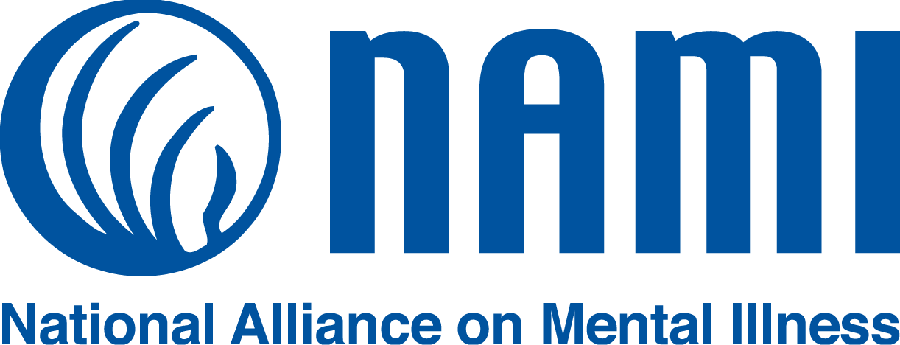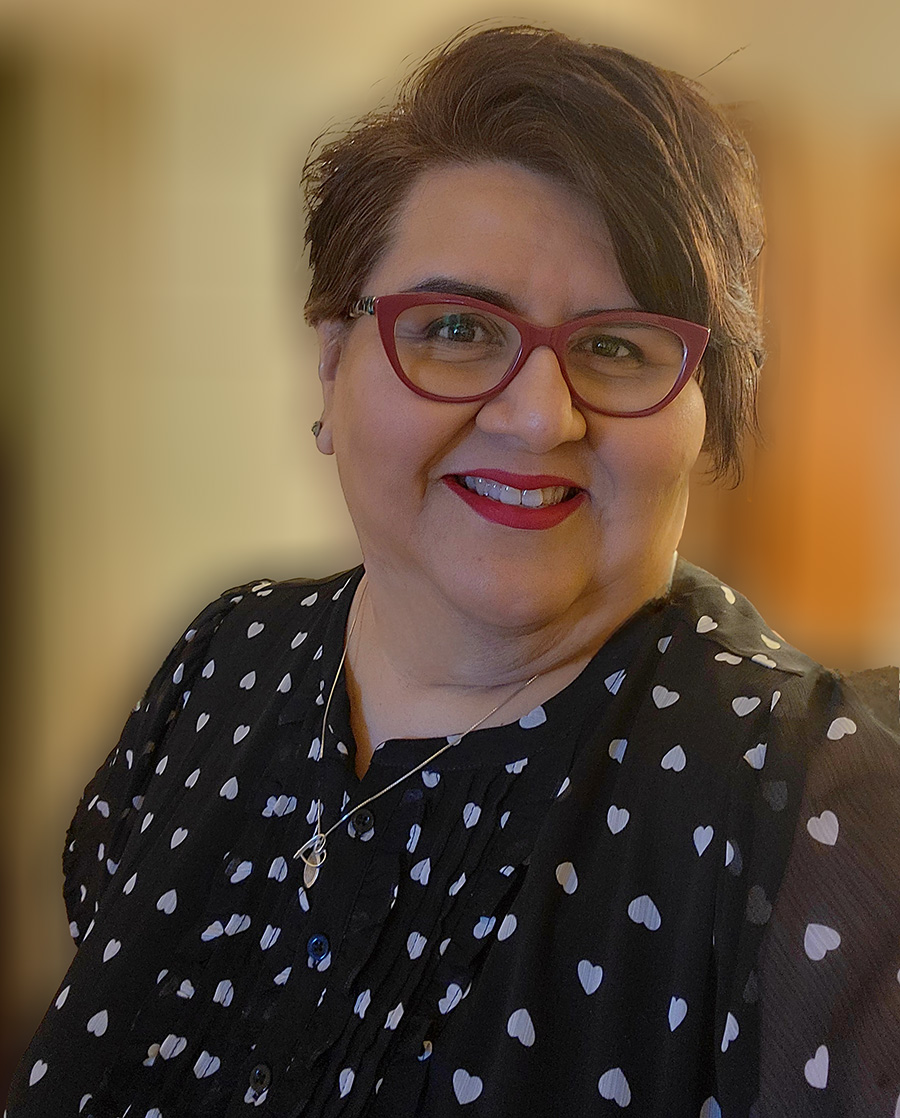Meet NAMI – National Alliance on Mental Illness
Some of the most important work BIAAZ does is helping our clients find resources that can support and guide them through the entirety of their brain injury recovery. We couldn’t do that without valuable partnerships with other organizations.
Today, we’re highlighting the state chapter of the National Alliance on Mental Illness, or NAMI Arizona
NAMI’s core mission is to destigmatize mental illness. The nonprofit organization was originally founded as a support resource for the family members and caregivers of people with mental illness but has since expanded to include education and support services for people living with mental illness themselves as well.
We recently sat down with Letitia Labrecque, who recently became the new CEO of NAMI Arizona in January.
“…to be part of a movement that makes mental health services as equitable as physical health care and to reduce the stigma surrounding mental health. I wanted to be a part of that narrative.”
Meet NAMI – National Alliance on Mental Illness
Some of the most important work BIAAZ does is helping our clients find resources that can support and guide them through the entirety of their brain injury recovery. We couldn’t do that without valuable partnerships with other organizations.
Today, we’re highlighting the state chapter of the National Alliance on Mental Illness, or NAMI Arizona
NAMI’s core mission is to destigmatize mental illness. The nonprofit organization was originally founded as a support resource for the family members and caregivers of people with mental illness but has since expanded to include education and support services for people living with mental illness themselves as well.
We recently sat down with Letitia Labrecque, who recently became the new CEO of NAMI Arizona in January.
“…to be part of a movement that makes mental health services as equitable as physical health care and to reduce the stigma surrounding mental health. I wanted to be a part of that narrative.”
Previously, Leticia served as executive director of NAMI Valley of the Sun, the Maricopa County chapter of the organization. Her work in the nonprofit sector follows a 20-year career with the Arizona Department of Economic Security (DES), where Leticia helped people with disabilities to secure employment.
Leticia chatted with us about what’s ahead for NAMI Arizona, why it’s a valuable resource for the brain injury community and a little bit about herself.
Why are you passionate about this work? What draws you to it?
Mental health has always had such a stigma to it. And it’s so easy to show up to the doctor’s and say, “I have an ache in my belly, or my back hurts, or I can’t get rid of this ear pain.”
But people just fight and fight with themselves to disclose that, “I’m so depressed I can’t get out of bed,” or “I can’t leave the house; I’m hearing voices and I’m afraid,” because there’s so much shame.
And so that shame, I feel, needs to be destigmatized. And that was really my push to be part of a movement that makes mental health services as equitable as physical health care and to reduce the stigma surrounding mental health. I wanted to be a part of that narrative.
Tell us more about NAMI and what the organization does.
I think the most important thing to take away from NAMI is that although it is harder for people to reach out for services because of stigma, resources are more and more available.
However, NAMI was born of the idea of, “What do we have available for family members and loved ones?”
And that’s really kind of how this started, asking how we can be a community of supporters for the families going through this collectively.
But it’s grown from there. The person going through it, they need to learn what it means to be empowered and have a strong voice about their illness and to speak their truth. So, we have peer programming, but you can’t do that without support groups because it’s not always roses, and there are very difficult times.
So, in essence, we are part of one of the largest nonprofit grassroots organizations in the nation. We provide education and support and advocacy in the community 100 percent free. We do not charge anyone any money, and we apply for grants and have fundraisers throughout the year to make sure that those services continue to be available to our community.
The support groups happen both in person and on Zoom, so if someone is not ready for in-person or is unable to drive there, we have that option now, which was born out of Covid.
And then education. A loved one can call and ask, ‘What about benefits? Where do I start? How do I get them hooked up with a physician?’
And then there’s advocacy? What are we doing as a state? What legislation do we want to get behind? What bills are being read in the Senate?
Why would a brain injury survivor or their caregiver want to contact NAMI?
Oftentimes, the symptomology is very similar. The person who has a mental health condition often has had a brain injury, and those who have had a brain injury will often exhibit symptoms that are very similar to those of a mental health condition.
So, the way we approach this community is by voicing their needs and getting the services they need together. That can only make the voices stronger. When we support organizations like BIAAZ, and we attach ourselves to these good quality organizations like the Brain Injury Alliance, it helps our voice be stronger and louder and reach more people, and also decision makers in the state from a collective forefront, and then our voice cannot be denied.
When you align yourself with a very solid organization, it’s going to boost your credibility and it’s going make your efforts that much stronger. And that’s why I think it’s important for us to partner.
What are some of those collaborative opportunities specifically?
NAMI is finding its voice, specifically in the advocacy realm. And I see that as a perfect opportunity to partner with BIAAZ because you’re fighting for the same equitable rights for your community. So, if we partner up on legislation and put our names to things we agree on, I think that would be one great way to partner.
And then just being visible together. I think that’s important, too.
And educating NAMI’s community on things like brain injury and the effects of having a stroke, or the effects having an overdose may do to your brain, and really letting them know these resources exist for that. And while they may have depression, are we sure that this depression is not borne out of something else that’s occurred to them?
So having these resources in our back pocket is a vital way we get all the support that’s out there for our community.
How does NAMI hope to grow and evolve moving forward?
[NAMI’s affiliates and chapters] have found themselves kind of silos.
There hasn’t been that collective effort to say as a state – because the money comes into the state – what our needs are and what we need to address from a macro level. And that’s the change that we’re trying to address with NAMI now.
So, we’re trying to unify and be seen as one collective voice but with individual needs. We do want to identify that the needs of somebody who lives in Phoenix are not the same as somebody who lives in Payson and be respectful of the rural areas and what they have at their fingertips.
Does NAMI have any new programs or initiatives?
I would say there is a higher level of concentration on a certain population, which would be our youth, adolescents, and young adults.
Because the rise in depression, anxiety and suicide is really increasing with our young people. They took a particularly hard hit with COVID, with the isolation, losing connections with friends and being unable to attend school, and coming home from school. It’s been tough for them to enter the world in a way that feels mentally strong.
So, we’re entering middle schools and high schools with one of our programs called Ending the Silence.
That offers education for teachers, staff, and counselors to know the red flags to watch out for, like what typical middle school behavior is versus what mental health conditions are brewing. And what they can do to support that student.
The students also give a presentation about learning through their mental health journey and how they managed to get through it or are still getting through it.
What do you do for fun? What are some of your other interests?
I love to bake; I bake purely for fun. I’m a home baker, a baker of all things like my nieces and nephews’ birthday parties and my mom turning 90 years old. But I really enjoy it; it’s actually very therapeutic for me. It’s very methodical, I like to plan it out, draw it out, I like to decorate it.
My other interest is my daughter, who is married and lives in Texas. She gets home as often as she can, and we love to share music together, try new restaurants, go to happy hours, and do stuff like that. So, I keep it close with family and baking.
— This interview was lightly edited for clarity and brevity —

ABOUT BRAIN INJURY ALLIANCE OF ARIZONA
The Brain Injury Alliance of Arizona (BIAAZ) is the only statewide nonprofit organization dedicated to improving the lives of adults and children with all types of brain injuries through prevention, advocacy, awareness and education. BIAAZ also houses the Arizona Brain Health Resource Center, a collection of educational information and neuro-specific resources for brain injury survivors, caregivers, family members and professionals.
What began in 1983 as a grassroots effort has grown into a strong statewide presence, providing valuable life-long resources and community support for individuals with all types of brain trauma at no charge.
The Brain Injury Alliance of Arizona:
- Works with Congressional Brain Injury Task Force
- Houses Arizona Brain Health Resource Center
- Hosts Statewide Opioid Use Disorder & Cognitive Impairment Workgroup
- Has Statewide Opioid Use Disorder & Cognitive Impairment Response team with peer support, training, and family wraparound services
- Facilitates Brain Health Advisory Council
- Manages statewide Neuro Info-Line: 888-500-9165






